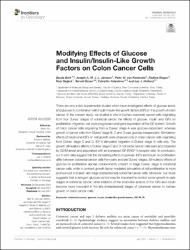| dc.contributor.author | Berk, Şeyda | |
| dc.contributor.author | Janssen, Joseph A. M. J. L. | |
| dc.contributor.author | Koetsveld, Peter M. van | |
| dc.contributor.author | Dogan, Fadime | |
| dc.contributor.author | Değerli, Naci | |
| dc.contributor.author | Özcan, Servet | |
| dc.contributor.author | Kelestimur, Fahrettin | |
| dc.contributor.author | Hofland, Leo J. | |
| dc.date.accessioned | 2022-05-13T07:40:06Z | |
| dc.date.available | 2022-05-13T07:40:06Z | |
| dc.date.issued | 05.07.2021 | tr |
| dc.identifier.citation | Berk, Ş. Department of Molecular Biology and Genetics, Faculty of Science, Sivas Cumhuriyet University, Sivas, Turkey,
Joseph A. M. J. L. J. ,Peter M. van Koetsveld, Doğan, F. , of Internal Medicine, Division of Endocrinology, Erasmus Medical Center, Rotterdam, Netherlands,
Özcan, S. Genome and Stem Cell Center (GENKOK), Erciyes University, Kayseri, Turkey,
Kelestimur, F. Department of Biology, Faculty ofSciences, Erciyes University, Kayseri, Turkey,
Leo J. Hofland Yeditepe University, Faculty of Medicine, Istanbul, Turkey | tr |
| dc.identifier.uri | https://hdl.handle.net/20.500.12418/12976 | |
| dc.description.abstract | There are only a few experimental studies which have investigated effects of glucose alone, and glucose in combination with insulin/insulin-like growth factors (IGF) on the growth of colon cancer. In the present study, we studied in vitro in human colorectal cancer cells originating from four Dukes’ stages of colorectal cancer the effects of glucose, insulin and IGFs on proliferation, migration, cell cycle progression and gene expression of the IGF system. Growth of colon cancer cells originating from a Dukes’ stage A was glucose-dependent, whereas growth of cancer cells from Dukes’ stage B, C and D was glucose-independent. Stimulatory effects of insulin and IGFs on cell growth were observed only in colon cancer cells originating from Dukes’ stage C and D. IGF-II stimulated migration in Dukes’ stage B cells only. The growth stimulatory effects in Dukes’ stage C and D colorectal cancer cells were accompanied by G2/M arrest and associated with an increased IGF-IR/IGF-II receptor ratio. In conclusion, our in vitro data suggest that the stimulating effects of glucose, IGFs and insulin on proliferation differ between colorectal cancer cells from early and late Dukes’ stages. Stimulatory effects of glucose on proliferation appear predominantly present in stage Dukes’ stage A colorectal cancer cells, while in contrast growth factor-mediated stimulation of cell proliferation is more pronounced in Dukes’ late stage (metastasized) colorectal cancer cells. Moreover, our study suggests that a stringent glucose control may be important to control tumor growth in early stages of colorectal cancer, while inhibition of the endocrine actions of the IGFs and insulin become more important in the late (metastasized) stages of colorectal cancer to restrain growth of colon cancer cells. | tr |
| dc.language.iso | eng | tr |
| dc.relation.isversionof | 10.3389/fonc.2021.645732 | tr |
| dc.rights | info:eu-repo/semantics/openAccess | tr |
| dc.subject | colorectal cancer, glucose, insulin, insulin-like growth factors, IGF-IR, IR | tr |
| dc.title | Modifying Effects of Glucose and Insulin/Insulin-Like Growth Factors on Colon Cancer Cells | tr |
| dc.type | article | tr |
| dc.relation.journal | Frontiers in Oncology | tr |
| dc.contributor.department | Fen Fakültesi | tr |
| dc.contributor.authorID | 0000-0003-4687-0223 | tr |
| dc.contributor.authorID | 0000-0002-9363-6408 | tr |
| dc.contributor.authorID | 0000-0003-0737-7014 | tr |
| dc.contributor.authorID | 0000-0002-9914-8843 | tr |
| dc.identifier.volume | 11 | tr |
| dc.relation.publicationcategory | Uluslararası Hakemli Dergide Makale - Kurum Öğretim Elemanı | tr |















